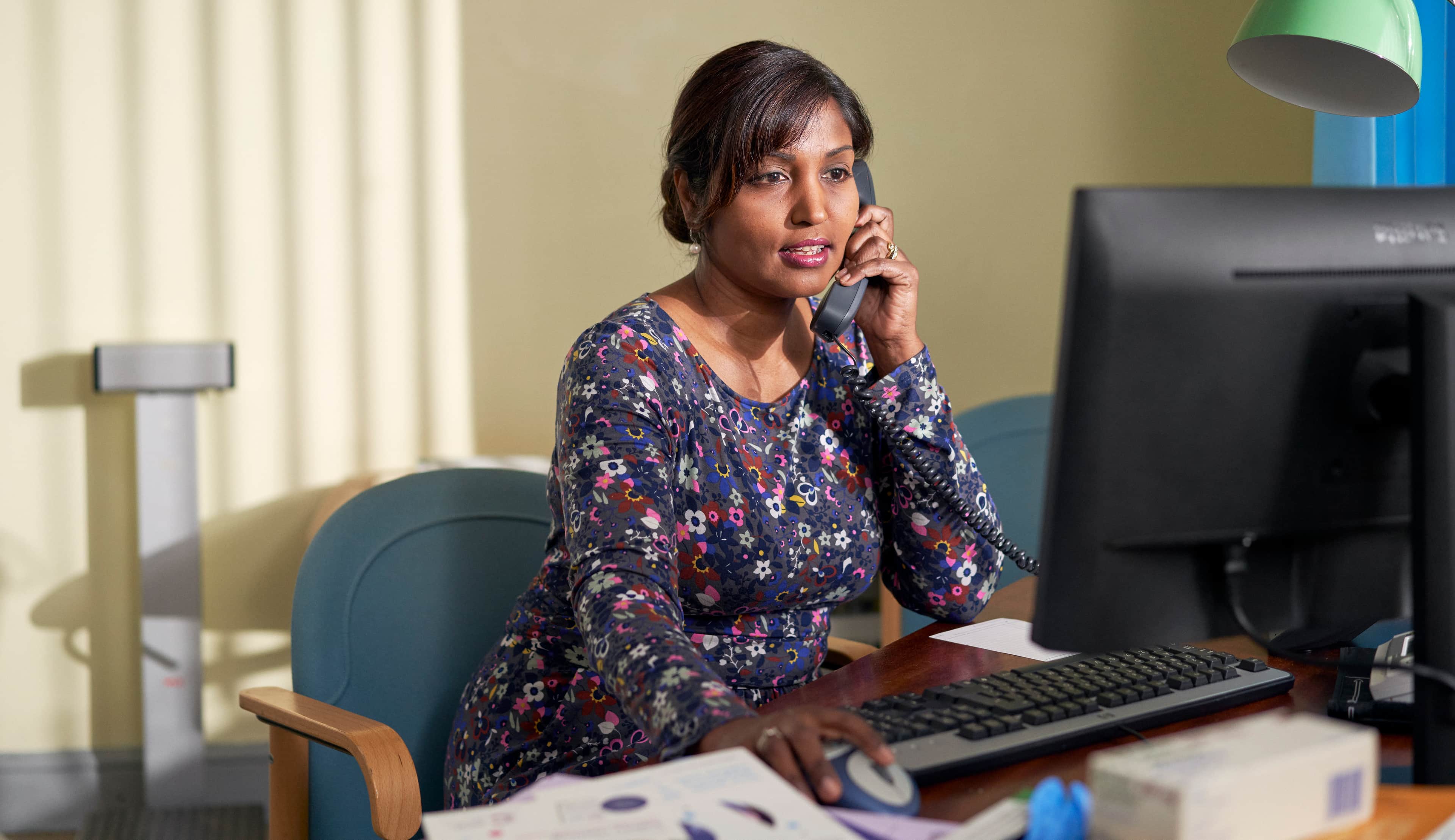
Last reviewed: 7 May 2025
Last reviewed: 7 May 2025
GPs play a pivotal role in diagnosing cancer earlier and supporting the NHS Long-Term Plan ambition to diagnose 75% of cancers at stage 1 or 2 by 2028. The aim of this information is to support GP practices and PCNs in England to deliver on their GP contract requirements for the early diagnosis of cancer and tackling neighbourhood health inequalities.
Read the Network Contract Directed Enhanced Service PCN specification requirements(PDF)
Read the accompanying guidance
These GP contract pages have been developed with our team of Cancer Research UK GPs. Our GPs are all practising and are involved in strategic work across their respective Cancer Alliances. For more information on the cancer-specific recommendations and resources to support with these requirements, visit our service specification on early cancer diagnosis page.
Delivering the PCN serviceThe 2025/26 DES contract notes that PCNs now have four core objectives:
Co-ordinate, organise and deploy shared resources to support and improve resilience and care delivery at both PCN and practice level;
Improve health outcomes for its patients through effective population health management and reducing health inequalities;
Target resource and efforts in the most effective way to meet patient need, which includes delivering proactive care; and
Collaborate with non-GP providers to provide better care, as part of an integrated neighbourhood team.
Improving referral practices
Improving early diagnosis with a specific focus on screening uptake
Reducing health inequalities
Primary care has a vital role to play in system-wide improvement efforts to increase the proportion of cancers diagnosed early. The Improving health outcomes and reducing health inequalities service requirements for PCNs seek to improve referral practice, screening uptake through network level activity, promote use of Faecal Immunochemical Testing (FIT) and Teledermatology, and non-specific symptom cancer pathways.
Although health inequalities are largely driven by factors outside of the healthcare system, actions taken within the healthcare system can impact health inequalities. It’s important to note that some actions, such as untargeted health awareness campaigns, can widen health inequalities, so measuring the impact of interventions on health inequalities is crucial.
Health Inequalities impact every part of the cancer pathway including prevalence of cancer risk factors, screening uptake, stage of disease at diagnosis, and access to and experience of treatment. They also contribute to stark differences in incidence and outcomes. Primary care has an important role in taking action to identify and address health inequalities. Whilst the Improving health outcomes and reducing health inequalities specification is not entirely focussed on cancer, there may be more PCNs wish to do in this area when working within local communities to address health inequalities that are amenable to primary care interventions. We would particularly highlight cancer prevention as an additional area where action could have a significant impact.
Make sure you check what is taking place (or being planned) locally before you embark on your own planning and actions, so you don’t reinvent the wheel.
There may be specific cancer working groups which bring together relevant stakeholders that you could tap into and share case studies to share learnings.
Make sure you link in with your Cancer Alliance and public health teams who will likely have local plans and resources to support you.
Your area may already have a CRUK GP or other GP cancer lead who will be aware of specific work around cancer which might support you and avoid unnecessary effort and duplication.
Review and understand data from audits, local or national sources, which may provide insight into areas to focus on at a PCN level.
Safety netting is key – use IT solutions to help with this.
Look at CRUK’s recommended key resources and find further support on our 'Delivering the PCN DES service specification' page.
There are a variety of resources that can help GPs and clinical roles deliver the cancer priorities in the primary care service specification 2025/26. Here are some resources we think might be helpful:
Download our free Symptom Reference Guide infographic which summarises NICE’s suspected cancer guidelines (NG12) by cancer sites and symptom type.
Use Office for Health Improvement and Disparities (OHID) Fingertips to review your PCN level reports.
Use the Primary Care Networks dashboard to see the benefits your PCN is achieving for your local community and to support quality improvement.
Use our GP bowel screening tool to explore how socio-demographic factors may affect screening coverage.
Tell your networks about our cancer awareness training programme which gives people in public-facing roles the confidence to talk about how you can reduce risks of cancer and how to spot it early on.
Stay up-to-date with the latest cancer research information.